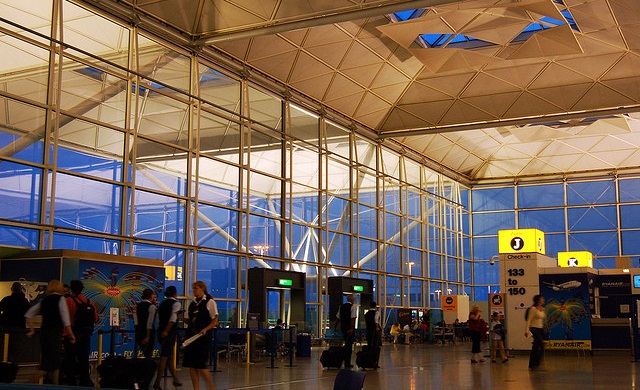I can’t help but bring up the subject of FastJet (LSE:FJET) again. As I have said before, it may not have the highest share price out there – not by a long shot – but this may be the best time to buy in. Today, for the second time in a week, FastJet was the volume leader on the London exchange at 237,216,754, more than 2.5 times than Lloyds (LSE:LLOY), which was second, and almost as much as the entire volume of the four runners-up: (LSE:LLOY), (LSE:BKIR), (LSE:MTV) and (LSE:VOD) combined.

FastJet’s share price peaked at 1.438 at 8:04 this morning, having closed at 1.18 on Thursday. Although some analysts had hoped that it would remain in that range, alas, as the trading frenzy slowed throughout the morning, it appeared to be in a landing pattern that would place it around 1.21 pence.
ADVFN picked up the FastJet story a week ago on 07 June 2013 (“FastJet on Fast Track“), then again on 11 June (FastJet Stock Goes Kaput?), and again yesterday with “Is the Market Driving You Nuts?” Just like their planes on the runway, FastJet shares have a lot of inertia to overcome. I understand that. But this morning’s press releases are sure to add substantial thrust to make this stock take off.
FastJet announced this morning that it has, after a lengthy journey through barriers of red tape, “been granted permission to launch international flights from Tanzania to South Africa, Zambia and Rwanda, marking a major step towards establishing the first-ever pan-African low-cost network.” This now clears FastJet to take off on its strategic plan that, up until now was just a plan. The company should now be able to capture significant increases in revenue to offset the costs of developing the plan and obtaining all of the necessary regulatory approvals. My confidence in FastJet is further substantiated by the separate announcement that it has also signed a Memorandum of Understanding with Red 1 Airways Ltd to operate a joint venture in Nigeria that will be dubbed FastJet Nigeria. FastJet CEO, Ed Winter, said that “The combination of FastJet’s brand and experience and Red 1’s extensive knowledge of the local aviation market and Nigerian business landscape, is a perfect foundation for a great airline.”
In yet another important announcement today, FastJet revealed that it has raised an additional £1.27 million in equity funding by issuing 98 million shares to Darwin Strategic Ltd at 1.15 per share. This is important because FastJet is not particularly cash-rich, with a liquidity ratio of only 0.10, which may be one of the fundamental reasons that my colleague, Azeez Mustapha, has felt that FastJet might go “kaput.” As I said yesterday, however, to see the potential of FastJet, we must look at the whole picture.
One of the secrets to the success of any new company – or any old company, for that matter – is the ability to provide something that someone needs. The more it is needed, and the more people that need it, the brighter the prospects are. Unlike technology companies, where needs and products change almost daily, airline service is a fundamental need, and its need in Africa is grossly underestimated by those of us living on other continents. Like many things in Africa, dependable, inexpensive airline service is not widely available. Don’t just take my word for it. Check out the following information taken directly from CNN about African air service:
- Africa has the second largest population of any continent but only accounts for 3% of global air traffic.
- Africa has a lack of routes linking cities, a lack of regular flights flying them and a lack of profitable airlines competing.
- “There is an enormous need for air traffic coming directly from the economic growth.” ~ Alexandre de Juniac, CEO of Air France
- A flight between Cape Town in South Africa and Lagos, Nigeria, the second fastest growing city in Africa, should take six hours. Yet with no direct flights, the cheapest option via the Middle East takes up to 25 hours while the faster, yet more expensive routes within Africa still take ten hours.
- Government policies have been “creating less competition on a continent that is crying out for more.”
Do you see the need? Do you see the depth and breadth of the need? Do you see how FastJet is positioned to meet the need? Stand by for takeoff!

















